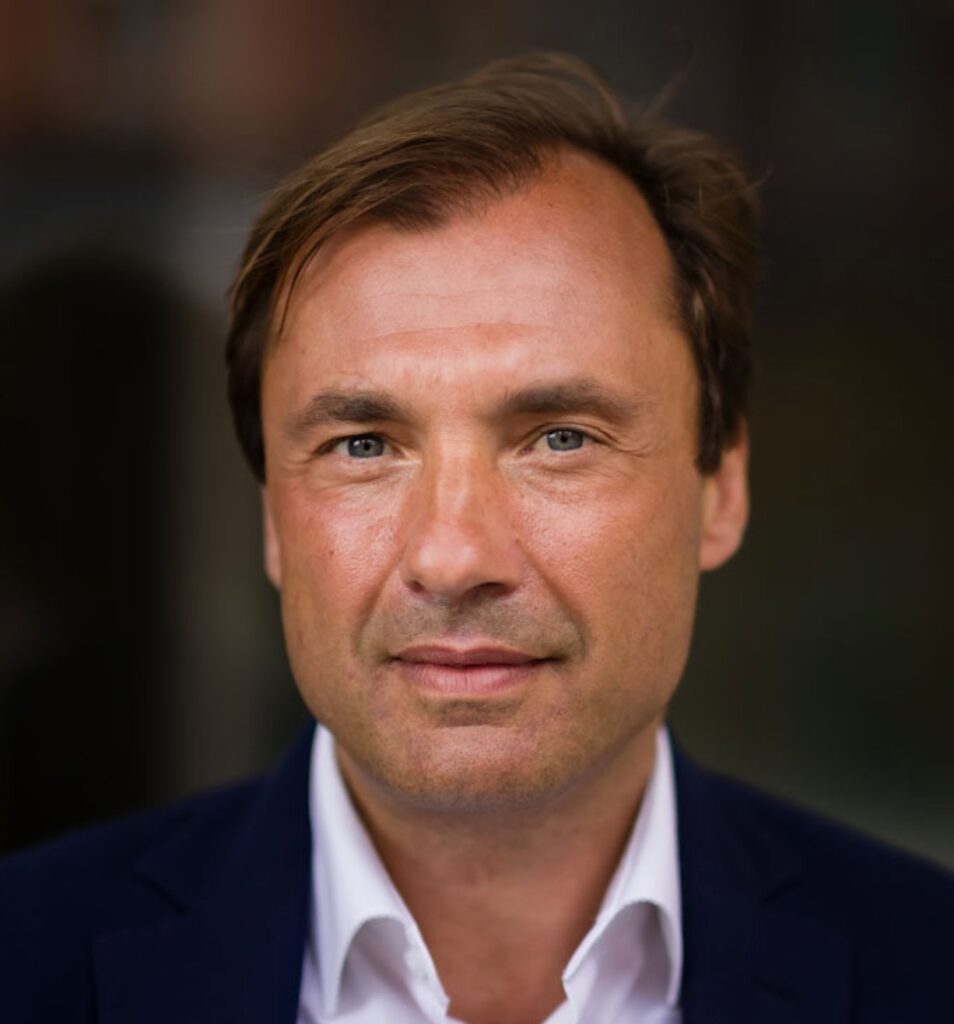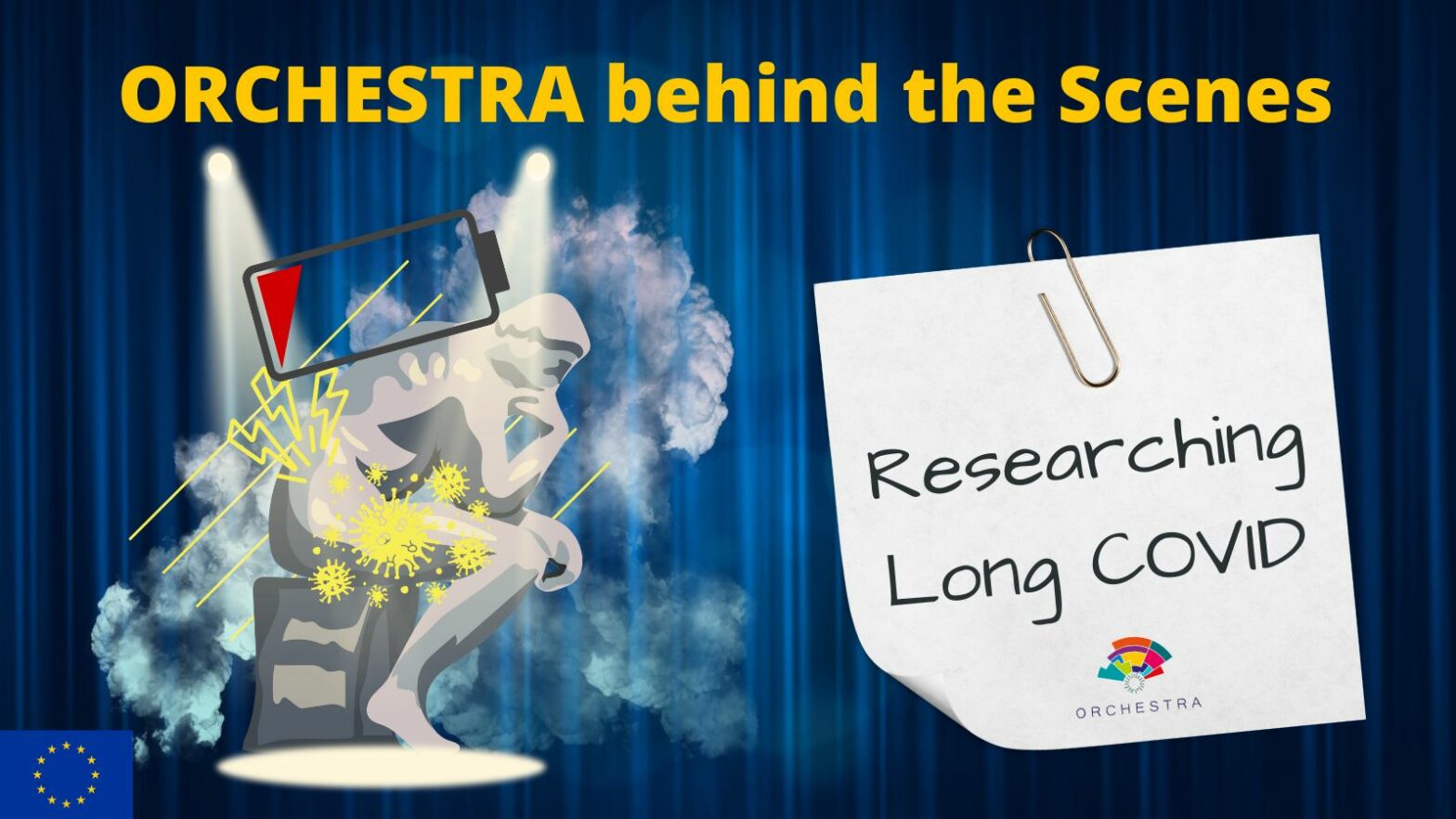“We can learn from COVID patients to find the questions that we need to understand to give the right answers”
Long COVID is affecting large numbers of patients. What needs to be done to help them and how ORCHESTRA can work on clinical solutions is the topic of the interview with Professor Alex W. Friedrich the Medical Director and Chairman of the Board of the University Hospital Münster. Professor Friedrich is a medical specialist with specific expertise in infection prevention and control, lead of Work Package 9 “The global COVID-19 guidance”.

Prof. W. Friedrich, what exactly is it that makes COVID-19 so different?
Alex W. Friedrich: This is a very important question because it is not a simple disease with a linear progression. First of all, there can be at least four different phases. An acute initial phase, in which the virus comes into the body replicating and develops as a classical infection. Then you have a short-term syndrome that could last around two weeks, which is the classical COVID-19 with symptoms that may range from light, moderate or severe. Afterwards, in some patients, there might be a “Long COVID phase”, which can last another one to three months with a broad list of possible lasting symptoms. Finally, if there is no recovery, the patient enters the “Post COVID syndrome”, which means that after three months – or longer – you can have sequelae (long-term effects). In addition to that, other diseases might also develop and worsen the scenario. As an example, we can mention heart strokes: we already know they can be caused by different viruses and there is an increasing number of studies suggesting that SARS-CoV-2 can contribute to the development of those heart pathologies, as well. This means that this virus could cause not only different infectious symptoms but it may lead also systemic syndromes. Unfortunately, we have not been able to define the entire spectrum of different diseases, yet.
Therefore, we need to do a lot of research – not only to understand how this infection may develop but also to be prepared for what kind of diseases will follow in the future. One thing we can be sure of: this will not be over with the end of the main pandemic but it will remain a public health issue for the years and maybe decades to come.
The terms Long COVID and Post COVID are still not very clear, even if the media report a lot about it. Do you have any clarification from your clinical experience? What exactly does Long or Post COVID mean?
Alex W. Friedrich: Yes, first of all, originally the term used to describe the period of long-lasting symptoms after the acute phase was “Long COVID”. Successively, scientists around the world identified two possible sub-stages that might occur in some patients: a first one, lasting one to three months, that was then called Long COVID and a second one, starting from the end of the third month onwards, that was called “Post COVID syndrome” phase. Tragically, there are already people suffering from severe illnesses of the syndrome. They need rehabilitation because they say that they are not fit, they are not reconstituted to normal. The main symptom is a kind of fatigue. We see this also in a lot of health care workers, this chronic fatigue. This is not caused only by the fact that they are exhausted from work: this is part of the midterm and long-term sequelae, which means consequences of the infection. Post-COVID syndrome can cause even other disorders, not only fatigue but also physical symptoms such as pain in certain parts of the body and inflammatory reactions. The symptoms come in many shapes. “Brain fog”, for example, means the incapability to concentrate and focus. We are still putting together the different pieces of the puzzle trying to understand the effects and the duration of these long-term symptoms. The broad and complex clinical picture of a COVID-19 infection with its partially unspecific symptoms is a true challenge for researchers. A first observation is that the more severe the acute phase is the more likely someone is to experience Long COVID and we still need to understand how to treat and manage it.
When we talk about “brain fog” and “concentration deficiencies”, this suggests that COVID could be linked also to the development of some mental health issues – what do you think? think will be the benefit of working with Orchestra?
Alex W. Friedrich: Yes, for sure. At this point, for sure it is clear that the virus directly or indirectly influences our central nervous system and the brain, depending of course on where the virus gets into our body and how invasive it gets into our brain and the cells. We still have to understand many things here, but it is for sure that the receptors that the virus needs are more or less everywhere in the body. Many factors influence the course of the disease. The immune status at the moment of infection, the vaccination status and the amount of virus – the viral load – that we are exposed to. Age also plays a significant role. Many different factors lead to a specific disease that happens. Besides research, we need to focus on helping people now and in the next months and years.
What needs to be done to support people now?
Alex W. Friedrich: We need to build up Long and Post COVID outpatient clinics, Post COVID rehabilitation centres and programmes flanked by research to constantly get a clearer picture of how to improve the health status of people. We are not talking about small numbers of people. We are talking about millions of people who are exposed per year – ongoing. Even when the pandemic will be over there will still be transmissions. We need to understand therefore how to prevent the disease from spreading and which therapies and vaccinations are the most efficient ones.
We need to research the long-term consequences – which means that we need to build up a strong collaboration with the patients to make sure that they stay on board for the follow-ups, right? How can we keep the patients motivated?
Alex W. Friedrich: In the ORCHESTRA project different patient cohorts are joined together. These cohorts imply patients who are already in the health care system and who are included in the clinical studies. But this is not enough. We are in contact with patient groups, with patient advocacy groups, and trying to get them involved in the research. We need to be in touch with people who are suffering from the symptoms. We can learn from COVID patients to find the questions that we need to understand to give the right answers. We are not only talking about the physical symptoms but also the mental symptoms. We need to take the entire social background of the people into consideration to understand how Long and Post COVID impact their daily life.
How do you see ORCHESTRA’s role in contributing to the research on Long and Post COVID?
Alex W. Friedrich: I think that ORCHESTRA is an excellent platform bringing together all the experts from clinical and epidemiological research in concert with patients but also citizens that suffer from COVID and COVID-related syndromes to create what I like to call a “citizen science-based approach”. Citizens suffering from the symptoms ask important questions and the researchers work tailored to the needs of the people. ORCHESTRA can facilitate this dialogue between citizens and experts.
Do you have any suggestions on how to cope with Long and Post COVID?
Alex W. Friedrich: We have to look at the fact that COVID is caused by SARS-CoV-2, which is still a virus causing an infectious disease. In the long run, we are talking about different infectious diseases caused by different variants of the virus. This means that the disease is not entirely new. We cannot get rid of the disease, it will remain on the planet and it will be oscillating on the planet, just like other respiratory diseases. This means we have to adapt our behaviour. General hygiene is important for preventing infections but the most important prevention measure is still to get vaccinated. We need to be able to offer well-adapted vaccinations tailored to the specific variants each year and people should get vaccinated – at least the risk groups such as immunosuppressed patients, people above sixty years and health care workers. Moreover, anyone who wants and can be vaccinated. Of course, meanwhile, we have to develop more specific treatments – but vaccination is still crucial in dealing with the disease.
Thank you very much for the interview, Prof. Friedrich.
Prof. Alex W. Friedrich is the Medical Director of the University Hospital Münster (UKM) in North Rhine-Westphalia, Germany, and started in ORCHESTRA as Director of the Microbiological Department of the University Medical Hospital Groningen (UMCG) and Member of the Executive Board of the European Society of Clinical Microbiology and Infectious Diseases (ESCMID). Interview by Dr. Daniele Pantano, Research Associate at UKM, team member of ORCHESTRA’s Work Package 9 “The global COVID-19 guidance”.
